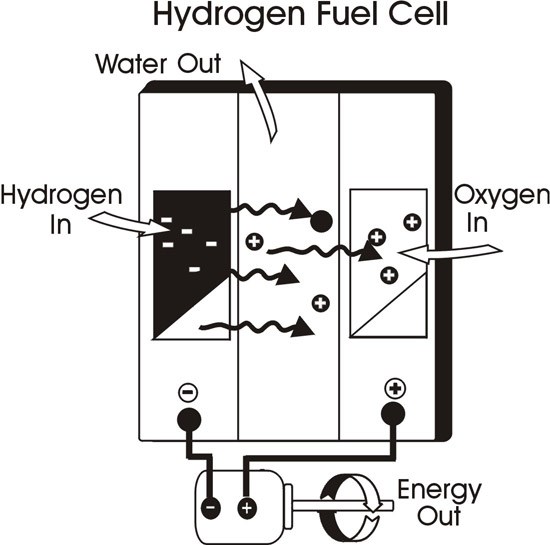Groundbreaking Hyundai study in partnership with leading research company and carbon emissions researchers uncovers consumer attitudes toward hydrogen vehicles and positive long-term environmental impacts
MARKHAM, ON, Aug. 11, 2015 /CNW/ - Hyundai Auto Canada Corp. (HACC) has uncovered a strong appetite among Canadians for hydrogen fuel cell electric and non-gasoline powered vehicles, showing that it is time for a change in the auto industry. The findings were obtained through a two-pronged research study in partnership with Canadian research company Ipsos Reid and Offsetters, North America’s leading carbon management company. Both focused exclusively on the Canadian market.
The consumer insight survey revealed the majority of Canadians (75 per cent) would like to drive a vehicle not powered by gasoline – but they aren’t keen to turn to traditional battery electric vehicles (BEVs), with 71 per cent of those surveyed indicating that constantly having to charge a BEV is a pain and 67 per cent feeling they are too much of a hassle to drive.
This may indicate why 64 per cent demonstrated an appetite to drive a vehicle powered by hydrogen and 77 per cent believe hydrogen fuel cell powered vehicles are the way of the future.
In January 2015, Hyundai became the first automotive company to offer hydrogen fuel cell electric vehicles to the Canadian public. The Hyundai Tucson Fuel Cell Electric Vehicle (FCEV) is available to Canadians on a 3-year lease in the Vancouver area. The Tucson FCEV takes less than 5 minutes to refuel and has an estimated range of over 420 km, eliminating the range anxiety and long recharge time of BEVs.
“Canadians have spoken. The appetite for hydrogen-powered vehicles is strong, and 80 percent of people agree that they would like the government to provide more support for the technology,” said Don Romano, President and CEO of Hyundai Auto Canada Corp. “Now that we have made fuel cell vehicles available to Canadians, the hydrogen refueling infrastructure must follow to support further expansion. It’s time for other automotive manufacturers, governments, the hydrogen industry, and citizens to join us in this initiative to create a healthier environment for the next generation.”
Given that prices for gasoline have fluctuated wildly over the last year, eco-friendly vehicles might appear less relevant on the surface. But, the Ipsos Reid survey revealed that 74 per cent of Canadians still see a major benefit in the fuel cell vehicles not being reliant on highly volatile fuel prices. More significantly, an even higher proportion (82 per cent) thinks that producing no greenhouse gas emissions is a major benefit of fuel cell vehicles. In other words, a large portion of Canadian consumers also seem to be concerned with their vehicle’s tailpipe emissions.
In an effort to demonstrate the benefits of fuel cell technology in a Canadian environment, the company commissioned a broad environmental impact study conducted by Offsetters. Taking into consideration the emissions created during the production of hydrogen fuel, the study found that driving a Hyundai Tucson FCEV will result in 40 per cent less greenhouse gas emissions compared to driving a comparable gasoline-powered vehicle on a well-to-wheel basis. The Tucson FCEV is also found to emit fewer air contaminants that result in smog and acid rain, demonstrating a direct benefit to air quality in densely populated cities.
“Together, these two studies provide conclusive evidence that Canadians are looking to the auto industry for another environmentally-friendly option,” added Romano. “A fuel cell powertrain provides the range and ease of refueling Canadians are used to while producing only pure water vapour as exhaust. The Tucson Fuel Cell delivers on both; truly a win-win for customers and the environment.”
NOTE TO MEDIA: Hyundai will provide media with both studies upon request.
IPSOS REID: SURVEY METHODOLOGY
An Ipsos Reid poll was conducted between May 27 and June 1, 2015 on behalf of Hyundai. For this survey, 1,501 Canadians from Ipsos’ Canadian online panel were interviewed online. Weighting was then employed to balance demographics to ensure that the sample’s composition reflects that of the adult population according to Census data and to provide results intended to approximate the sample universe. The precision of Ipsos online polls is measured using a credibility interval. In this case, the poll is accurate to within +/ - 2.9 percentage points, 19 times out of 20, had all Canadian adults been polled. The credibility interval will be wider among subsets of the population. All sample surveys and polls may be subject to other sources of error, including, but not limited to coverage error, and measurement error.
HYUNDAI AUTO CANADA CORP.
Hyundai Auto Canada, established in 1983 and headquartered in Markham, Ontario, is a subsidiary of Hyundai Motor Company of Korea. Hyundai vehicles are distributed throughout Canada by Hyundai Auto Canada and are sold and serviced through more than 210 dealerships nationwide. Hyundai is also the first to offer its zero-emissions Tucson Fuel Cell Electric Vehicle to Canadian customers. More information about Hyundai and its vehicles can be found at www.HyundaiCanada.com.
SOURCE Hyundai Auto Canada Corp.



